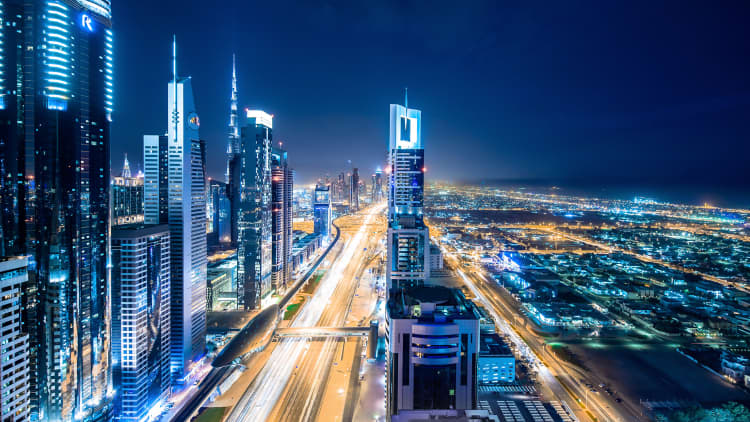
Smart cities are coming.
Municipal governments around the globe are employing big data and Internet-of-Things applications to improve many aspects of daily life. Major tech companies like IBM, Cisco and Microsoft are in on the trend, and are battling for a slice of the $15 billion that's projected to be spent on software by 2021, according to Juniper Research.
Urban residents accounted for 54 percent of the total global population in 2014, according to the World Health Organization, and that figure was projected to grow nearly 2 percent each year until 2020.
That growth means that cities are facing increasing challenges, including congested transport and the need to supply sufficient energy to meet demands of growing populations.
Juniper Research noted a city's ability to provide renewable energy, alongside its means to efficiently manage energy storage will be increasingly important.
"Right now North America and China are leading the way, although Trump is likely to dampen what is already slowing U.S. investment," Steffen Sorrell, principal analyst at Juniper Research said.
President Donald Trump has supported fossil fuel production and repeatedly denied climate change.
"Who would have thought 10 to 15 years ago, that the Far East and China would be leading the globe in smart energy efforts by 2020?" Sorrell said.
Still, many challenges remain for cities on their way to becoming "smart." Major upfront costs for both infrastructure and software are propelling many governments to turn to public-private partnerships.
CNBC looks at three cities working on becoming "smart":
Singapore
The city-state might be the "smart" gold-standard for its extensive effort to collect data on daily living. Its Smart Nation program was launched in 2014 and collects data on many facets of life.
Data is collected in a platform, Virtual Singapore, which helps the government understand how the city is functioning in real-time and potentially predict how crowds might react in an explosion or how infectious disease might spread.
Dubai
As part of the Smart Dubai initiative, the government has rolled out more than 50 smart services from 22 government entities. It allows people to access everything on one app, Dubai Now.
App users can do everything from pay a speeding ticket, pay an electric bill, renew vehicle registration and track the status of a visa.
Barcelona
The Spanish city is working to rethink its energy costs, with a goal of saving billions of dollars in the process, according to Juniper.
Using motion sensors, Barcelona has implemented smart lighting in its street lights which dims and brightens depending on activity by cars or pedestrians. The city offers systems that allow drivers to know exactly where free public parking spots are available at any given time.


